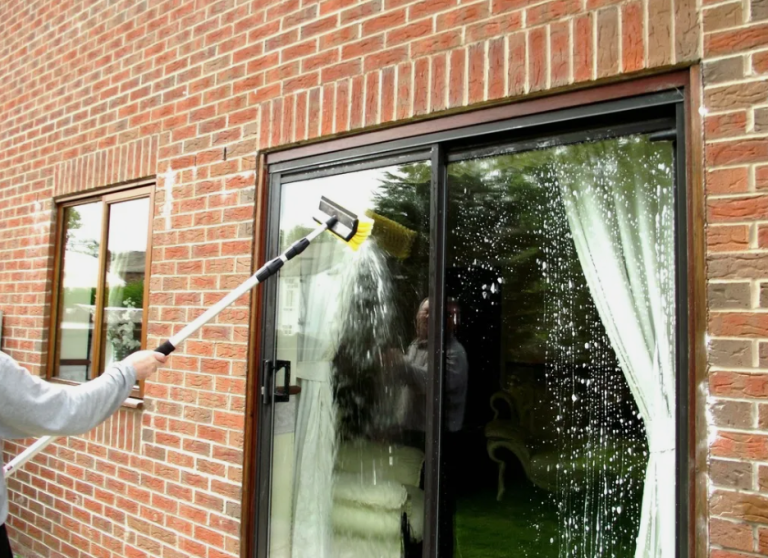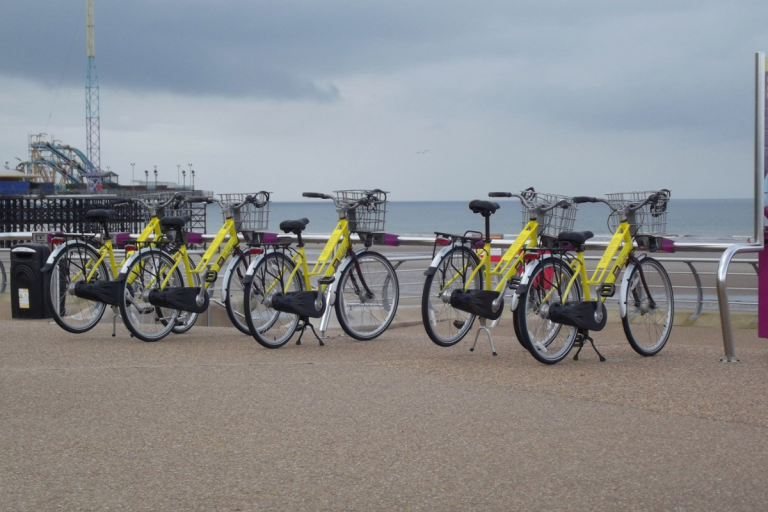How to Start a Childminding Business in 2025 (in the UK)
If you love working with children and want to run your own business from home, starting a childminding business can be a rewarding and flexible career. With more parents looking for affordable, home-based childcare, there’s a strong demand for good childminders in the UK, who provide a safe, nurturing, and stimulating environment. But before you start advertising your services, you need to take a few essential steps.
This guide will walk you through everything you need to know—from legal requirements to setting up your home, digital marketing and even dealing with pets.
Getting Registered: Legal Requirements
Before starting a child-minding business, you’ll need to register with Ofsted (Office for Standards in Education, Children’s Services and Skills) or a Childminder Agency (CMA). This is a legal requirement if you plan to care for children under 8 for more than two hours a day in return for payment.
DBS Check (Criminal Record Check)
To work with children, you (and anyone else over 16 in your household) must have a Disclosure and Barring Service (DBS) check to prove you have no criminal history that would make you unsuitable to care for children. This usually costs around £52 and must be updated yearly via the DBS update service (£13 per year).
Paediatric First Aid Training
You’ll need to complete a paediatric first aid course (usually lasting 12 hours), which covers CPR, choking, allergic reactions, and other medical emergencies. This training ensures you’re prepared to handle any accidents or health issues that arise while caring for children.
Childcare Training & Safeguarding
Even if you have previous experience looking after children, you’ll need to complete a childcare training course approved by your local authority or childminder agency. This covers child development, behaviour management, and keeping children safe.
Safeguarding training is also essential to help you recognise signs of abuse or neglect and understand your responsibilities in reporting concerns.
Registering with Ofsted or a Childminder Agency
Most childminders register with Ofsted, but some choose a Childminder Agency (CMA) instead. CMAs offer more support but may charge extra fees.
To register with Ofsted, you’ll need:
- A completed application form
- Your DBS check
- First aid and safeguarding training certificates
- Health declaration from your GP
- Home safety inspection
The registration process takes around 12 weeks, so plan ahead before advertising your services.

Setting Up Your Home for Childminding
Your home needs to be safe, clean, and child-friendly. You don’t need a mansion, but it should be well-organised and meet Ofsted safety standards.
Space & Layout
You’ll need a designated play area with enough space for children to move around safely. A secure garden is a bonus, as outdoor play is important. Your home should have:
- A safe, enclosed play area
- A clean, child-friendly kitchen and eating space
- A dedicated sleeping/resting area for younger children
- A toilet and handwashing facilities that children can access easily
Safety Measures
Child safety is a top priority. Make sure to:
- Install safety gates on stairs
- Lock away cleaning products, medications, and sharp objects
- Use corner protectors on furniture
- Keep small objects out of reach to prevent choking hazards
- Secure heavy furniture to walls to prevent tipping
Dealing with Pets in a Childminding Environment
If you have pets, you’ll need to take extra precautions to ensure they don’t pose a risk to children in your care. While many children love animals, some parents may have concerns about allergies, hygiene, or safety.
Here’s how to manage pets professionally:
- Assess their temperament – Only well-behaved, child-friendly pets should be around children. If your pet is nervous, excitable, or prone to unpredictable behaviour, it’s best to keep them separate.
- Keep pets separate during working hours – Many childminders use baby gates or designate pet-free areas to maintain a controlled environment.
- Regular vet check-ups – Ensure your pet is up to date with vaccinations, flea and worm treatments, and general health checks to minimise health risks.
- Hygiene and cleaning – Regularly clean pet bedding, food areas, and litter trays to prevent the spread of bacteria and parasites. Always wash hands after handling pets.
- Be transparent with parents – Some children may have allergies, asthma, or phobias. Always inform parents about any pets in your home before they enrol their child.
Certain animals carry potential health risks. Cats, for instance, can transmit toxoplasmosis, while dogs can carry parasites like roundworms that may pose a risk to young children. Teaching children proper handwashing and ensuring pets are well cared for will help create a safe and happy environment for everyone.

Do You Need Experience with Children?
While formal childcare qualifications aren’t required, parents will want to know that you have experience. If you’ve raised your own children, worked as a nanny, or helped in a nursery or school, highlight this.
If you’re new to childcare, volunteering at a nursery, toddler group, or school can help you gain experience and confidence before setting up your business.
How Much Can You Earn as a Childminder in 2025?
Childminding can be a profitable and flexible business, but earnings depend on several factors, including location, experience, local demand, and economic conditions.
Geographical Impact on Earnings
Childminders in cities and high-demand areas, such as London, Manchester, and Birmingham, tend to charge higher rates than those in rural regions. Areas with a high concentration of working parents or a shortage of nurseries often have greater demand for childminding services, allowing you to charge premium rates.
Economic Factors
The cost of living and inflation continue to impact childcare fees. Many families are now balancing rising household costs with the need for reliable childcare, which means affordability is a key concern. At the same time, government funding options (such as 15–30 hours of free childcare for eligible children) influence how much parents are willing to pay out-of-pocket.
Below is a rough guide to current childminding rates across different parts of the UK:
| Region | Hourly Rate Per Child | Full Day Rate | Weekly Rate (Full-Time Care) |
|---|---|---|---|
| London | £7 – £10 | £60 – £90 | £300 – £450 |
| South East | £6 – £8 | £50 – £75 | £250 – £375 |
| Midlands | £5 – £7 | £45 – £65 | £225 – £325 |
| North of England | £4.50 – £6.50 | £40 – £60 | £200 – £300 |
| Scotland & Wales | £4.50 – £7 | £40 – £65 | £200 – £325 |
| Rural Areas | £4 – £6 | £35 – £55 | £175 – £275 |
Maximising Your Earnings
Many childminders care for up to three children at a time, meaning your income can add up quickly. For example, at a mid-range rate of £6 per hour per child, looking after three children full-time (40 hours per week) could bring in £720 per week before expenses.
Additional ways to increase earnings include:
- Before & After-School Care – High demand among working parents, especially in cities.
- School Holiday Care – Offering flexible holiday cover for working parents.
- Weekend or Evening Childcare – Some parents need care outside standard hours.
- Specialist Services – Caring for children with additional needs or providing bilingual childcare can justify higher fees.
Childminding is a sought-after service, especially in areas where formal childcare options are either too expensive or oversubscribed. With the right approach to pricing, scheduling, and marketing, it can offer a stable and rewarding income while providing the flexibility to balance work and family life.
How to Market a Childminding Business
Word of Mouth and Recommendations
The most powerful form of marketing for any childminding business is word of mouth. Parents are far more likely to trust someone who has been personally recommended to them. To build a strong reputation:
- Ask for reviews and testimonials. If you’ve cared for children before (even informally), ask parents for written recommendations that you can share.
- Encourage referrals by offering an incentive, such as a small discount or a free session, to parents who recommend your service to others.
- Get involved in local community groups by attending baby and toddler groups, school events, or parenting meet-ups to introduce yourself.
Most parents search online when looking for a childminder. If you’re not visible online, you’re missing out on potential clients.
Google Business Profile
Setting up a Google Business Profile is essential for local visibility. This listing appears when people search for “childminder near me” on Google. It’s free and allows you to:
- Appear on Google Maps so parents can easily find you
- Display your contact details and working hours
- Showcase reviews from happy parents
- Post updates and photos to highlight your services
A well-maintained Google profile adds credibility and makes it easier for parents to find and contact you.

Creating a Strong Online Presence
A Professional Website
A simple website makes your business look more professional and gives parents a place to find all the key information they need. You don’t need anything complicated—just a clean, easy-to-navigate site with:
- Your experience and qualifications
- Services offered and pricing
- Photos of your childminding space
- Testimonials from parents
- Your contact details and location
If you’re not confident in building a website yourself, platforms like WordPress, Wix, or Squarespace make it easy to set up a basic site, or you can hire someone to do it for you.
Facebook Page and Local Groups
Many parents look for childminders on Facebook, so having a dedicated business page is a must. This allows you to:
- Post updates and photos showcasing your childcare environment
- Share testimonials from happy parents
- Answer questions and engage with parents directly
- Run Facebook ads to reach local families
Additionally, joining local parenting and community Facebook groups is a great way to promote your services. Look for groups where parents discuss childcare and post something like:
“Hi, I’m a fully registered childminder in [your area] with spaces available for children aged [age range]. I offer a safe, caring home-from-home environment. Please get in touch if you’d like more details.”
Engaging with comments and private messages quickly is important, as parents often reach out to multiple childminders at once.
Online Directories and Listings
There are several websites where parents actively search for childminders. Listing your business on these platforms increases your chances of being found. Popular sites include:
- Childcare.co.uk – One of the most popular childcare directories in the UK
- Mumsnet Local – A trusted site where parents search for childcare
- Local council childcare directories – Many councils have lists of registered childminders
Adding a profile with clear details, pricing, and photos helps build trust with parents searching for childcare.
Traditional Marketing: Flyers and Noticeboards
While digital marketing is important, traditional marketing methods should not be overlooked. Many parents still find childminders through local word of mouth and printed materials.
- Flyers – Design a simple, professional flyer and distribute it in playgroups, nurseries, libraries, community centres, schools, and family-friendly cafés.
- Posters on noticeboards – Many supermarkets, churches, and GP surgeries have noticeboards where you can advertise your services.
- Car branding – If you drive, consider putting a magnetic sign on your car with your business name and contact details.
Offering Special Promotions
When you’re just starting, offering an introductory deal can encourage parents to try your service. Some ideas include:
- A first week at a discounted rate
- A sibling discount for families with more than one child
- A refer-a-friend scheme, where parents get a small discount if they refer another family
Marketing your childminding business isn’t just about getting your first clients—it’s about building a strong reputation so that word spreads and parents trust you with their children. By combining online and offline strategies, you can maximise your visibility and fill your available spaces quickly.
Final Thoughts
Starting a child-minding business can be a fantastic career choice if you love working with children and want the flexibility of running your own business. While the registration process takes time, it’s worth it to provide a safe and professional service that parents can trust.







